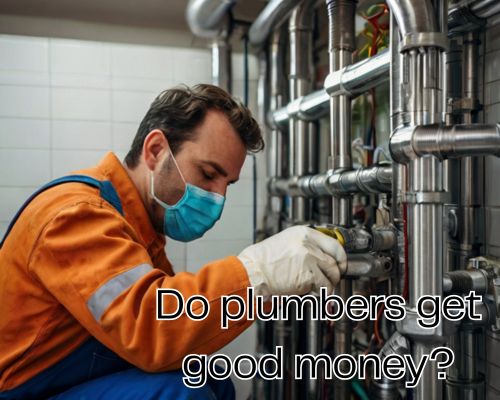
What Are Plumbers Called in Australia? A Deep Dive into Trade Terminology in Victoria What Are Plumbers Called in Australia? A Deep Dive into Trade Terminology in Victoria
If you’ve ever browsed a job board or watched a renovation series filmed Down Under, you might’ve wondered: what are plumbers called in Australia? Are they simply “plumbers,” or is there a local twist on the term? In Victoria, and indeed across the country, the answer is both straightforward and layered with cultural, professional, and licensing nuances. With Plumber Warragul, let’s explore the terminology, qualifications, and local references that shape the identity of plumbers in Australia — particularly in Victoria, where the trades industry is thriving.

The Short Answer: Yes, They’re Called “Plumbers” — But Not Just That
In Australia, including Victoria, the standard term for a plumbing professional is indeed “plumber.” However, depending on their specialty and licensing, they may also be called:
- Licensed Plumber
- Registered Plumber
- Sanitary Plumber
- Gasfitter
- Drainlayer
- Roof Plumber
- Mechanical Services Plumber
These aren’t just fancy titles — each term corresponds to specific endorsements under Australian plumbing regulations, especially as governed by the Victorian Building Authority (VBA).
Trade Licensing and Classification in Victoria
In Victoria, plumbers are regulated under the Plumbing Regulations 2018, administered by the VBA. Tradespeople must either be registered or licensed to legally carry out plumbing work.
- Registered Plumber: Permitted to perform plumbing tasks under supervision or according to VBA specifications.
- Licensed Plumber: Can issue compliance certificates, supervise other plumbers, and operate independently.
There are eight classes of plumbing work recognized in Victoria:
- Water Supply
- Sanitary
- Drainage
- Roofing (stormwater)
- Gasfitting
- Mechanical Services
- Fire Protection
- Refrigerated Air Conditioning
So, when someone asks “What are plumbers called in Australia?” — in Victoria, they might be a licensed sanitary plumber or a registered gasfitter, depending on their area of endorsement.
Common Lingo and Colloquial References
Beyond formal titles, Aussies are famous for their casual and often cheeky use of language. You might hear terms like:
- Tradie: A general term for any tradesperson, including plumbers.
- Chippie and Sparky: Carpenters and electricians, respectively. While plumbers don’t have an equally catchy slang term, they’re often still lumped in as “tradies.”
- Pipey: Occasionally used informally on construction sites to refer to plumbers — especially those working with piping systems in industrial or commercial settings.
Though not widespread, “pipey” can surface in job ads or on-site banter in Victoria’s construction and mining sectors, such as in Bendigo, Ballarat, or Geelong.
Education and Apprenticeship Pathways
In Victoria, aspiring plumbers usually begin with a Certificate III in Plumbing (CPC32420), often completed as part of an apprenticeship. Registered Training Organisations (RTOs) such as TAFE Victoria, Holmesglen, or Box Hill Institute offer these programs.
The apprenticeship typically lasts four years, during which trainees learn a combination of on-the-job skills and theoretical knowledge. Upon completion, they can apply to the VBA for registration and eventually licensing in their chosen plumbing classes.
Specialists, such as roof plumbers working in outer Melbourne suburbs or gasfitters servicing Mornington Peninsula, are increasingly in demand as Victoria’s infrastructure expands.
Regional Demand and Job Outlook
According to Labour Market Insights Australia, plumbing is considered a skill-shortage occupation, particularly in regional parts of Victoria, including Shepparton, Mildura, and Warrnambool.
Here’s why plumbers are highly sought-after in the state:
- Population growth in suburban and regional corridors like Melton and Tarneit
- Renovation booms post-COVID in urban areas like Melbourne and Geelong
- Increased infrastructure investment in public housing and transportation
- Continued demand for eco-friendly plumbing systems, like rainwater tanks and solar hot water
All of this drives up the need for licensed plumbing professionals — particularly those certified in gasfitting, drainage, or roofing.
Earning Potential: What’s in a Name?
Understanding what plumbers are called is one thing — but does the title influence how much they earn?
Yes, to a degree.
- A licensed plumber in Melbourne may command up to $50–$70 per hour, depending on their specialty.
- A registered apprentice plumber in regional Victoria may earn around $20–$28 per hour, depending on their year level.
- Gasfitters and roof plumbers, due to their niche skills, can often earn premiums over general plumbers.
Moreover, self-employed plumbers who market themselves with precise descriptors — e.g., “Licensed Sanitary and Drainage Plumber in Geelong” — often enjoy better SEO rankings, stronger brand authority, and more direct client inquiries.
Final Thoughts: So, What Are Plumbers Called in Australia?
In conclusion, while “plumber” remains the umbrella term used across Australia, particularly in Victoria, the full story is more nuanced. Depending on qualifications, work type, and licensing status, plumbers may also be known as:
- Licensed Sanitary Plumber
- Registered Drainage Contractor
- Roof Plumbing Specialist
- Gasfitter or Mechanical Services Plumber
Visit Plumber Warragul for more.

